Lesson 2: “Our position is that Vietnam is completely independent”
Regarding the actions of the Vanguard Youth force, an insider, Mr. Lam Quang Vinh (Hai Vinh, in An Hoa, Trang Bang), said: the reason he was present in the uprising to seize power in Tay Ninh town was because around July 1945, he went from Trang Bang to Tay Ninh town to study military affairs in the Vanguard Youth movement at Hiep Ninh communal house (30/4 street, Tan Ninh ward today) with Mr. Lam Thai Hoa in charge of the class. This class gathered about 50 Vanguard Youth cadres from localities in the province, eating, living, and studying right in Hiep Ninh communal house. On the surface, it was a physical training class but in reality it was a military training class, students learned from assembling the formation to using weapons with guns secretly brought by two Republican Guard officers from Sang-da citadel.
Seizing power at the Governor's Palace
Regarding the "seizing power" event at the Tay Ninh Provincial Governor's Palace (headquarters of the Tay Ninh Provincial People's Committee (old)), Mr. Hai Vinh recalled: "At noon on the day the Uprising Committee held a rally at the Provincial Stadium, around 10:30, Mr. Lam Thai Hoa commanded the Vanguard Youth Unit, including me, to take over the Provincial Governor's Palace. Later, Mr. Hoa told me that his father - a military doctor in the French army, was a friend of Provincial Governor Le Van Thanh, so he was directed by the Uprising Committee to find a way to persuade the Provincial Governor to surrender to the Viet Minh. At around 2:00 p.m., the Provincial Uprising Committee came to take over the government, Mr. Le Van Thanh declared that he was no longer the Provincial Governor of Tay Ninh and accepted all decisions of the revolutionary government."
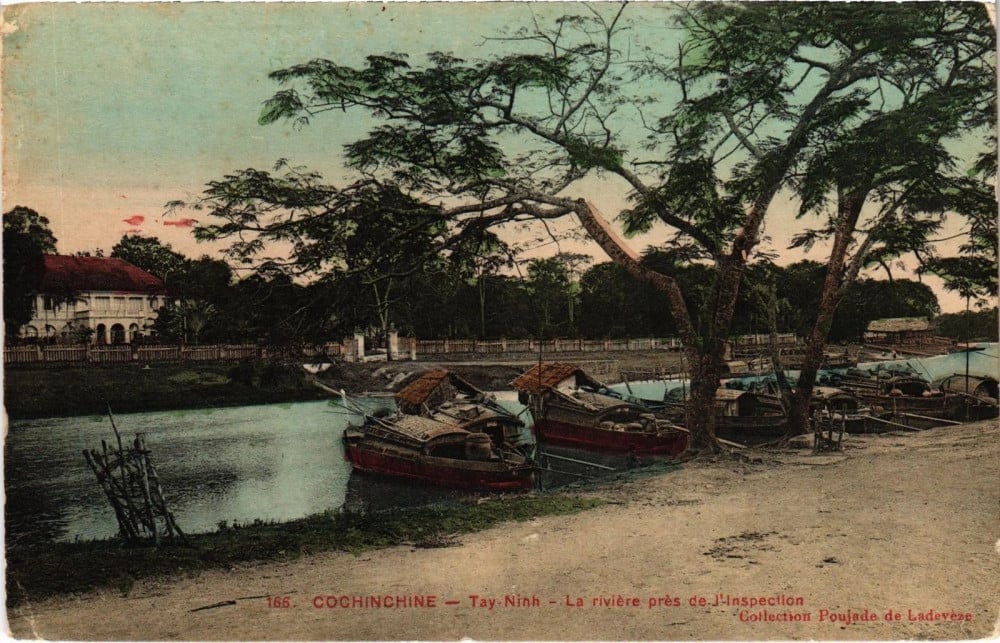
Tay Ninh Canal in 1900, behind is Toa Bo (Tay Ninh Provincial Governor's Palace)
In particular, the August Revolution in Tay Ninh was also marked by the achievement of capturing the French colonial ringleader alive when they were about to return to invade our country once again. Mr. Hai Vinh said: “That afternoon, when the sky was about to sunset, Lam Thai Hoa and I went upstairs, to the balcony of the Provincial Governor's Palace to admire the view of the provincial center with Tay Ninh canal right in front of the palace and the bustling market area on the other side of Quan bridge. Suddenly, Mr. Hoa looked up into the distant sky and discovered an airplane flying in the direction of the Vam Co Dong River towards Chau Thanh district. From the fuselage of the airplane, two black dots flew out with parachutes. Lam Thai Hoa judged that there were French invaders parachuting, so he ran downstairs to report to the leaders of the Uprising Committee. Immediately, he was ordered to mobilize a squad of Vanguard Youth to march to Chau Thanh to hunt down the invaders.”
Regarding the two French invaders captured by us on the day the Viet Minh Tay Ninh took power, Mr. Hai Vinh said: “The Frenchman captured by Lam Thai Hoa was named Jean Cédile, with the rank of colonel, and was appointed by the French Government as High Commissioner of the French Republic. In fact, after the end of World War II, when the Allies won the war, Western colonial powers such as England and France had agreed with each other that whichever country was a colony before the war, that country would continue to occupy it. Therefore, when the British army carried out the task of disarming the Japanese army in the South of our country, they would create conditions for the French colonialists to return to Indochina. Colonel Cédile parachuted into Tay Ninh to “go ahead” to connect with the British delegation, preparing to welcome the French army hiding behind the British army that came over later. After Cédile and the guard were captured by the armed militia unit of the Viet Minh Tay Ninh Uprising Leadership Committee and were being interrogated by the Viet Minh at the Tay Ninh Provincial Governor’s Palace, where the Viet Minh province was located, occupied on August 25, there was an officer commanding the Japanese army stationed in the Sang-da citadel, next to the Provincial Governor's Palace, who came to offer to bail out the two French. Because in the days before the uprising, the provincial Viet Minh leader had mobilized the Japanese forces in Tay Ninh (about 20,000 troops) to remain inactive while our people rose up to gain independence. From that situation, the provincial leader was forced to give in, handing Cédile over to the Japanese to bring back to Saigon to the British delegation that had just come to Vietnam to disarm the Japanese army that had surrendered to the Allies in World War II more than a week earlier.
From the incident where the Tay Ninh army and people captured Colonel Cédile, our country's revolutionary leaders clearly recognized the French colonialists' ambition to hide behind the British army to disarm the Japanese fascists and re-invade our country. This incident was the "early answer" - right after the successful August Revolution in the South (August 25, 1845), our country's revolution had more time, even though it was known that it would be very quick, to prepare forces to enter the resistance war.
When recounting the capture of the "pioneer" colonel in the French colonialists' campaign to retake Vietnam, Mr. Lam Quang Vinh - one of the 27 patriots of the Rong Forest Oath in the past, commented: "It can be said that if General De Castrie was the last general captured alive by our army and people at Dien Bien Phu, then French High Commissioner Jean Cédile was the first colonel captured alive by us at the border of Tay Ninh province during the Indochina War - a war in which the French colonialists lost shamefully after trying to salvage what they had "lost" after 80 years of domination of our country. And so it can also be said that capturing Colonel Cédile was the first achievement of the army and people of Tay Ninh in the cause of defending the Fatherland."
Developments after Independence Day
The subsequent developments immediately after the independence day of September 2, 1945 in the South confirmed that the prediction of the situation by the Vietnamese revolutionary leaders in the whole country in general, and in the South in particular, was completely correct. In fact, the French intention to maintain the colonial regime in Indochina had been revealed since Charles de Gaulle was still the "President in exile" of France. According to Charles de Gaulle's declaration, the five Indochina regions (North Vietnam, Central Vietnam, South Vietnam, Laos and Cambodia) formed the Indochinese Federation within the French Union.
Thus, Vietnam would not be independent, would still be divided into 3 regions and would still be a French colony. Therefore, France “had the right to reclaim” after the Japanese fascists lost the war in World War II. This argument was flatly rejected by the Vietnamese revolutionary leaders. Right at the beginning of the Declaration of Independence read by President Ho Chi Minh, it affirmed: “Vietnam has the right to enjoy freedom and independence, and in fact has become a free and independent country.”
Jean Cédile - French officer captured by Viet Minh forces in Tay Ninh on August 24, 1945
Regarding the Vietnamese revolutionaries' rejection of Charles de Gaulle's argument, raised by the "pioneer" officer of the French colonialists who was captured in Tay Ninh on August 28, 1945 - Colonel Jean Cédile, was recounted in the book History of the Southern Resistance (Volume 1) (1945-1954) edited by Professor Tran Van Giau, summarizing as follows: Hearing the news of Japan's surrender to the Allies (August 14, 1945), Charles de Gaulle hastily appointed General Leclerc as Commander-in-Chief of the French Expeditionary Force in the Far East (August 16, 1945), Admiral Thierry d'Argenlieu as French High Commissioner in Indochina, Jean Cédile and Messmer as Commissioners of the French Republic in Cochinchina and Tonkin. After the Japanese army "sponsored" the French paratroopers to Tay Ninh, Cédile was taken by the Japanese army to live in a house in the grounds of the old Governor-General's Palace (now the Reunification Palace). Here, Cédile and some French people prepared a plan to retake the South.
On August 27, after witnessing the successful Saigon uprising, Cédile, who was staying at the Governor's Palace of Cochinchina (later the Independence Palace, now the Reunification Hall) by the British mission, met with the three heads of the Provisional Southern Administrative Committee: Chairman Tran Van Giau, Chief of the Interior Nguyen Van Tao and Chief of Foreign Affairs Pham Ngoc Thach, requesting the Committee to implement the March 24, 1945 Declaration of Charles de Gaulle.
The leaders of the Provisional Southern Administrative Committee (later the Southern People's Committee) responded decisively: Vietnam had gained independence and freedom. De Gaulle's March 24 declaration was out of date with the situation. Vietnam acknowledged France's economic and cultural interests in Vietnam, was ready to create conditions for French people who wanted to return home, and agreed to compensate for French properties that were later nationalized... In return, France had to recognize Vietnam's independence. Faced with Cédile's unfriendly attitude, Chairman Tran Van Giau declared: "We are ready to talk if Charles de Gaulle's representative puts the discussion on the position of Vietnam's complete independence. If Charles de Gaulle's representative puts the discussion on another position, we will let guns and bullets answer"./.
(to be continued)
Nguyen Tan Hung - Dong Viet Thang
Last article: Autumn of independence, autumn of resistance
Source: https://baolongan.vn/cach-mang-thang-tam-o-tay-ninh-su-kien-va-nhan-chung-lap-truong-cua-chung-toi-la-viet-nam-hoan-toan-doc-lap-bai-2--a201571.html


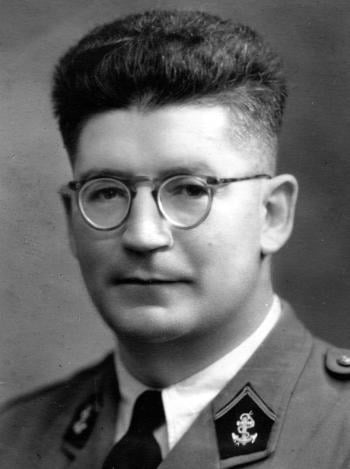

![[Photo] Dan Mountain Ginseng, a precious gift from nature to Kinh Bac land](/_next/image?url=https%3A%2F%2Fvphoto.vietnam.vn%2Fthumb%2F1200x675%2Fvietnam%2Fresource%2FIMAGE%2F2025%2F11%2F30%2F1764493588163_ndo_br_anh-longform-jpg.webp&w=3840&q=75)





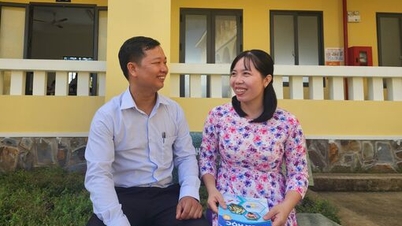
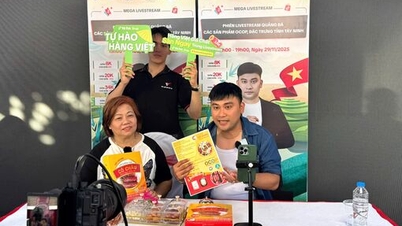
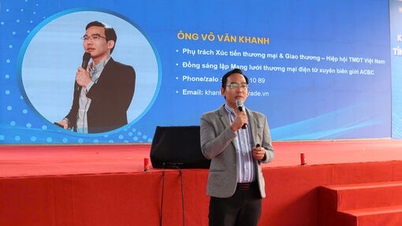
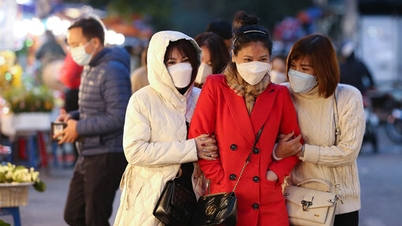
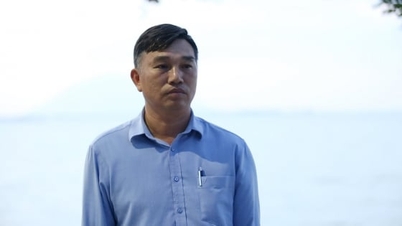

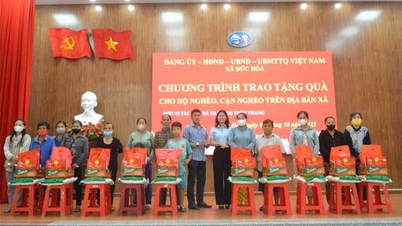
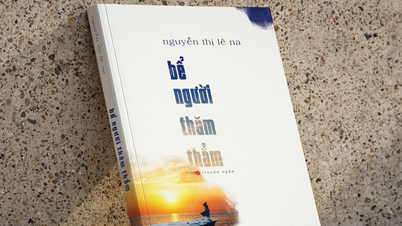



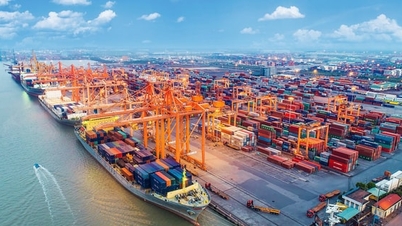


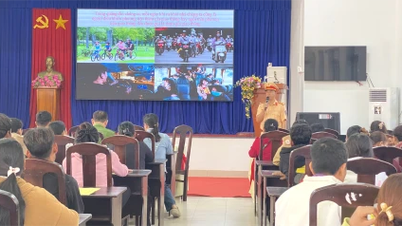





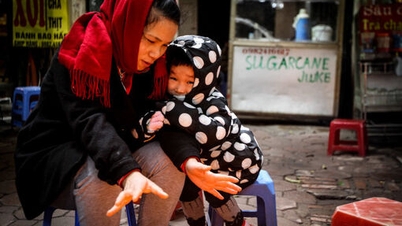
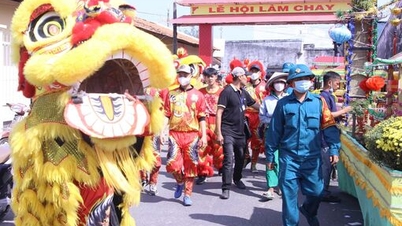
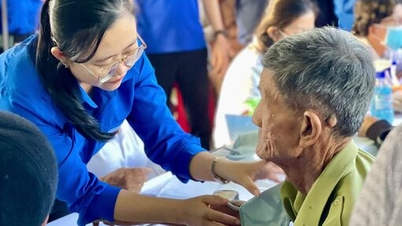
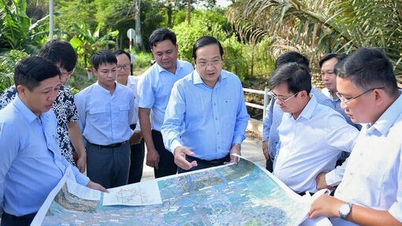

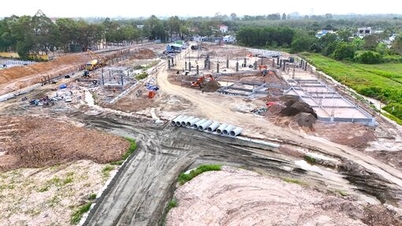

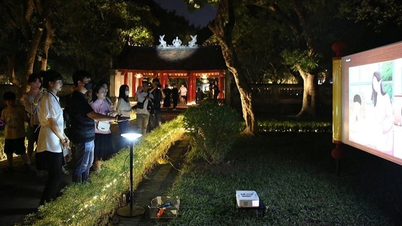









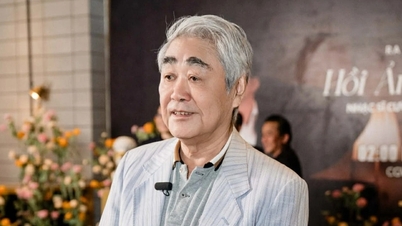

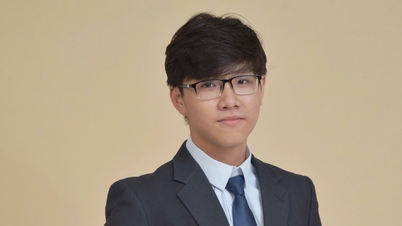

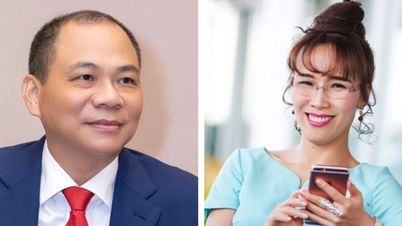
















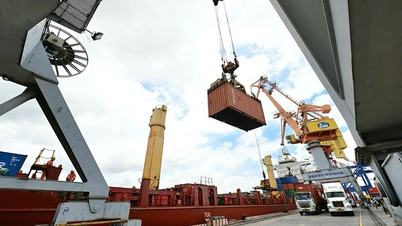



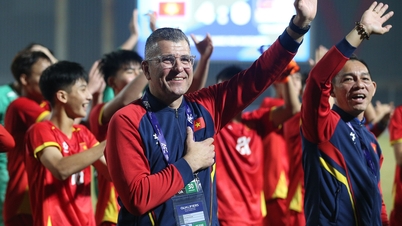
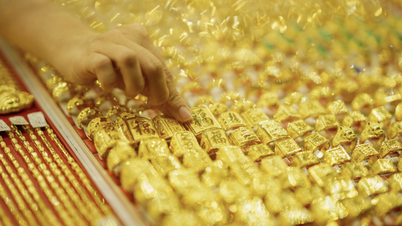
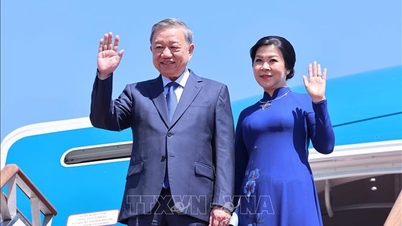


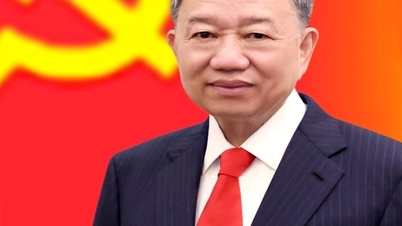

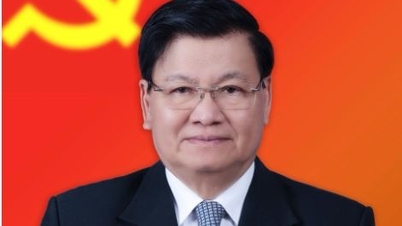
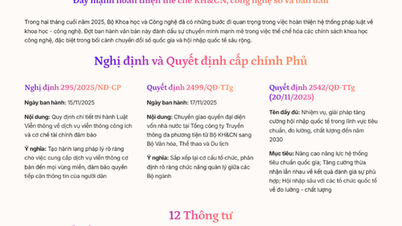

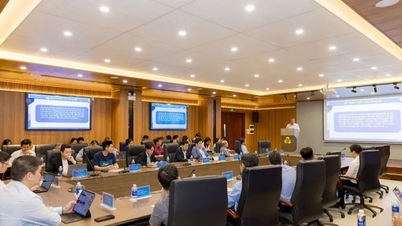
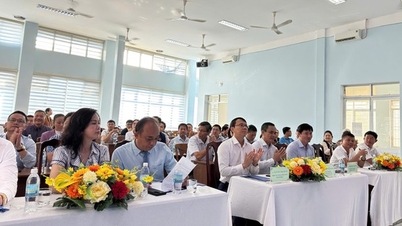
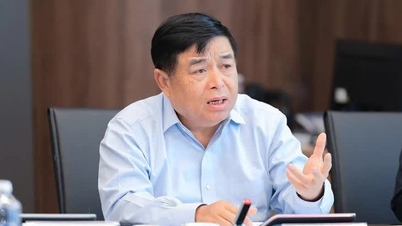
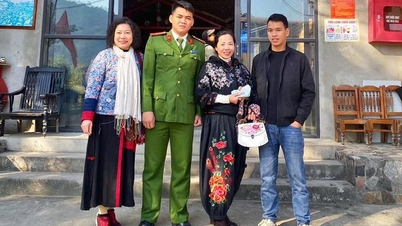

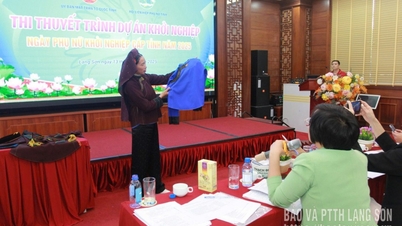

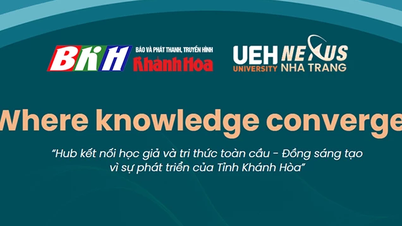

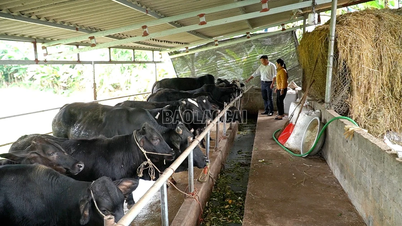













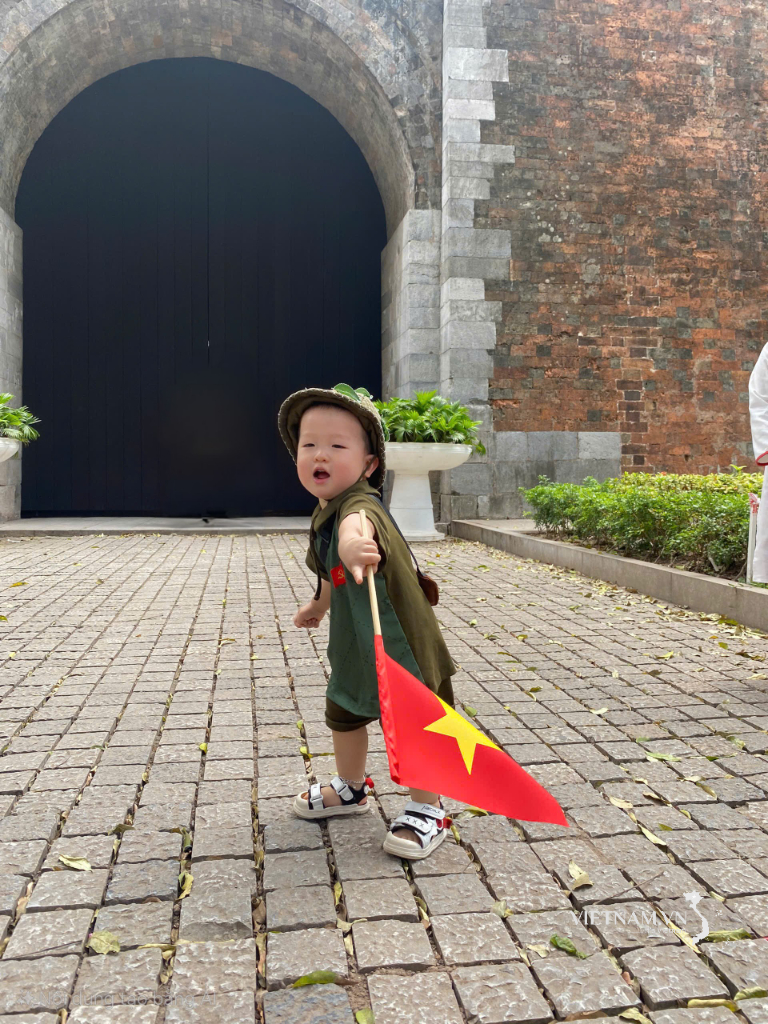

Comment (0)